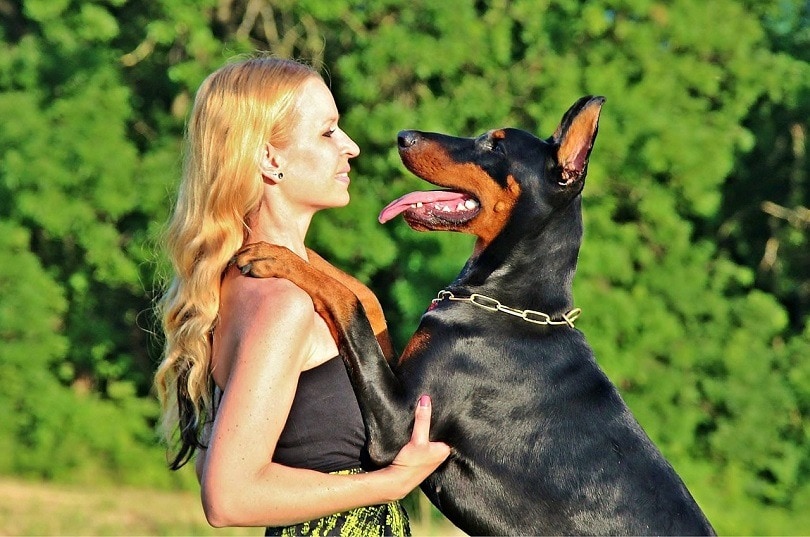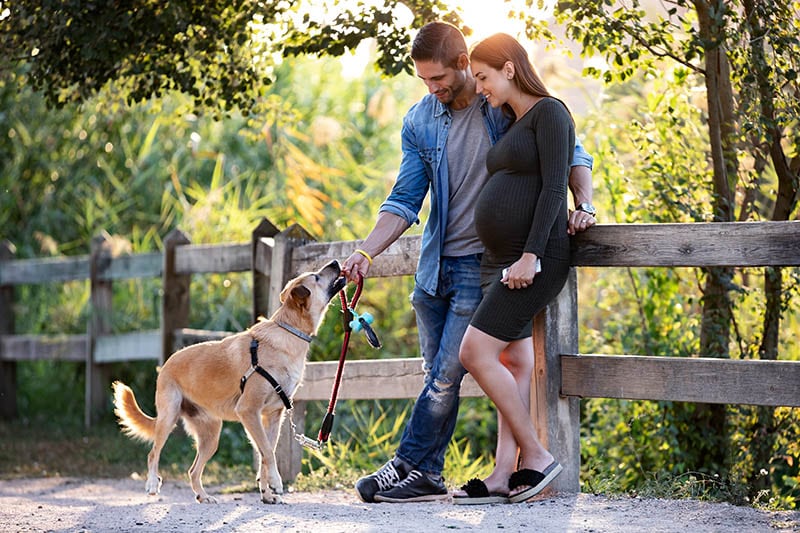
Choosing the right dog breed to bring into your home and make part of the family is a big decision that shouldn’t be taken lightly. Dogs are a commitment. You should be prepared to provide them with love, care, and friendship throughout their lives. To ensure you choose the right dog breed for your situation, there are a few tips you can follow. Let’s take a look at a few of those tips below so you can make an informed decision when it comes to deciding which dog breed is right for you, your family, and your situation.
 Top 10 Tips on How to Choose the Right Dog Breed for You
Top 10 Tips on How to Choose the Right Dog Breed for You
1. Size Matters

No matter what you’ve heard, there are certain situations where size does matter. One of those situations is choosing the right dog breed to make part of your life. Before you can bring a pooch home you must take note of the amount of room you have in your home. Do you live in a small apartment? Do you have a large house? The size of your living area greatly determines the size dog breed you should focus on. If you want a companion to share your apartment with, a smaller dog breed may do best. If you have a large living area, with lots of open space to share for running and playing, then larger breeds could be your answer.
2. Your Schedule

Your schedule plays an important role in deciding which dog breed is best suited for you. Do you work crazy hours? Will your dog always be alone? Can you dedicate the time needed to properly train your pet? All these questions need to be answered before you decide what dog breed should become part of your family. If you’ll only be home at certain times you need a dog that does well on its own and doesn’t need lots of activity to stay healthy. If your schedule is more open and you have lots of time on your hand, then a dog that needs more exercise and attention could be a great fit.
3. A Dog’s Age

A puppy isn’t right for everyone. Often, you’ll find mature dogs, or even older dogs, who need a great home. If your busy life doesn’t give you the time needed to care for a puppy, choosing an older dog from a breed that works well with your needs could be the answer. Older can mean wiser, better trained, and able to fit into your lifestyle easier.
4. Your Lifestyle

Are you a homebody who feels a night at home on the couch with your pet is a dream scenario? If so, a dog breed that likes lounging and cuddling is your answer. If you prefer being on the go, taking hikes, long drives, or even hitting the beach a more active dog breed would fit better into your lifestyle.
5. Family-Friendly Breeds

For those who have big families, including kids, you may want to consider sticking with breeds that are known to be family-friendly. Golden and Labrador Retrievers are often a big hit in these scenarios but they aren’t the only family-friendly dogs out there. A big key when bringing a dog into a family is to ensure that not only is the dog breed a wise choice, but that any small children are taught how to properly interact with the dog so no issues arise.
6. Intelligence Levels

Some people look for dog breeds that are smarter than others so they can train them. Whether you’re looking for a dog that can learn to protect you and your family, a therapy dog, or even one that can do certain activities with you, there are breeds out there that have higher intelligence levels. If training and skill are a must, consider looking into smarter dog breeds.
7. Shedding and Grooming

While having a dog requires some level of grooming, you may want to bring one into your life that isn’t a big shedder due to allergies. No dog is truly hypoallergenic, but there are breeds out there that shed far less than others. If you have issues with dog hair, a Husky may not be a wish choice. You’ll also find that certain dog breeds require a higher level of grooming. If this can’t fit in with your schedule, you may want to choose a dog breed that is more low-maintenance when it comes to grooming needs.
8. Health Issues

Unfortunately, while all dogs are amazing, some breeds do have hereditary health issues that may be concerning. Understanding a breed’s life expectancy and potential health risks is important before determining whether that breed of dog is right for you. You should also be able to guarantee that you’ll take your new dog for its needed veterinarian visits and check-ups.
9. Personality

Yes, every dog has its own personality, but every breed does have inherent traits to consider. For example, most German Shepherds are intelligent and loyal. Dobermans are protective of their people and affectionate. Mixed-breed dogs take on some of the best personality traits from their parent breeds. A breed’s traits need to be considered, especially, if you’re looking for a specific type of dog to have in your life.
10. History

A dog’s history is very important in determining whether a breed is right for you. It isn’t nice to think about it, but certain dog breeds find themselves at the mercy of bad owners and bad breeders more often than others. If you truly want to bring a dog into your home you should know as much about the particular dog in question’s history and the breed’s history. This will give you better insight into how the dog may behave or react to certain situations.
Conclusion
If you’re ready to bring a dog into your life, these 10 tips can help you decide which breed is right for you. As always, when making these types of decisions, be sure you’re ready to have a dog that will depend on you as part of your world. Dogs can be the best friends you’ve ever had, so be sure your life is in a place where both of you can be happy and healthy together.
See also:
- 20 Best Dog Breeds for Teenagers & Reasons Why (With Pictures)
- 22 Healthiest Dog Breeds (With Pictures)
Featured Image Credit: JumpStory

 Top 10 Tips on How to Choose the Right Dog Breed for You
Top 10 Tips on How to Choose the Right Dog Breed for You




